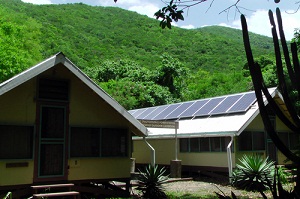IDB increases financing for solar, renewable projects in Latin America
 The Inter-American Development Bank (IDB) approved $736 million in private sector lending for clean energy and environmentally friendly projects, including two firsts for solar projects in Latin American and Caribbean countries.
The Inter-American Development Bank (IDB) approved $736 million in private sector lending for clean energy and environmentally friendly projects, including two firsts for solar projects in Latin American and Caribbean countries.
That’s more than the $663 million it invested on such projects between 2000 and 2010.
The IDB’s funding for clean energy projects is likely to remain close to that level in 2012 as well. It plans to support more than $700 million in such projects this year, the organization said in a press release.
Among other projects IDB has supported is a 1-megawatt solar project in Brazil.
“The IDB’s Structured and Corporate Finance Department (SCF) supported the Taua solar pilot project, which is the first power generation project in Brazil to connect a photovoltaic system into the National Interconnected System,” said IDB spokesperson Romina Tan Nicaretta. “In its pilot stage of 1 MW of direct current; it already represented the largest project implemented in South America with its energy incorporated into the electrical grid.”
The SCF also supported the first installation of a solar project at a fruit farm in Chile through a loan to Subsole, Nicaretta said. That PV farm generates enough power to make the vast Hornitos grape orchards self-sufficient.
The reason why such support has grown is largely a matter of timing.
“The number of approved country reforms and frameworks promoting renewable energy were such that, last year, several important wind programs started to materialize at the financing stage,” said Nicaretta. “Our recent capital increase will certainly allow the bank to further participate in this sector since renewable energy is one of the priorities in the development agenda agreed during our capital increase.”
At this point the IDB has helped support a number of off-grid PV applications, according to Nicaretta. But that is likely to change soon.
“They quickly shall give way to grid-connected projects as technologies improve,” she said. And IDB is helping projects get there. “In some Caribbean countries like Barbados, the IDB has set up concessional financing facilities to decrease investment costs of grid connected PV and other small renewable systems as well, together with grant money for reaching a bankable stage.”
Going forward wind will likely remain the leader, Nicaretta said. That’s because many of the countries the bank serves have high wind resources and good wind policy in place.



